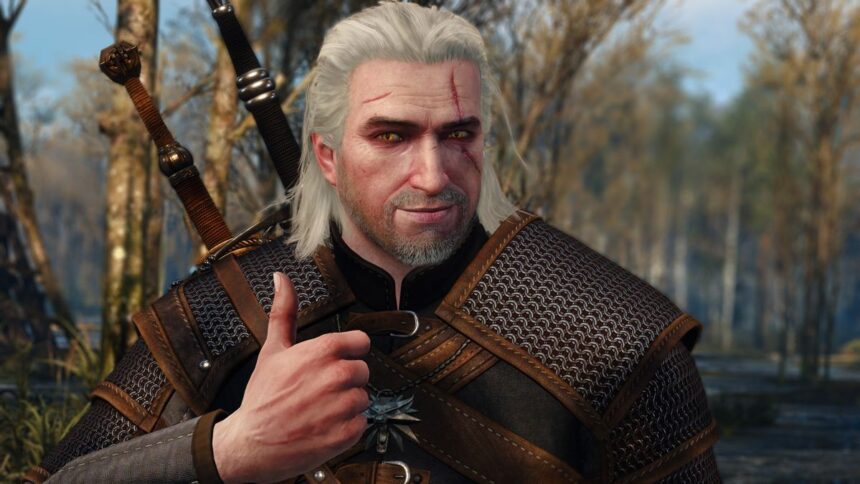Ever for the reason that introduction of digital distribution (which regardless of what some might imagine, does pre-date Steam), players have apprehensive about possession of their video games. Time was that this sense of unease was mixed-up with an comprehensible nostalgia for bodily media, that comforting sense of getting the disc and at all times proudly owning the sport, however because the bodily and retail aspect has turn out to be a smaller a part of the image, which is very true on PC, our questions concerning the varied digital storefronts and Steam’s default standing have turn out to be extra pointed. And it appears like 2024 is the 12 months when players en masse began to get critical concerning the erosion of their possession of software program they’ve paid good cash for.
The arguments have been round perpetually, however they have been made concrete by the easy indisputable fact that, during the last decade specifically, we have seen increasingly more video games merely disappear. And we’re not speaking about obscure hobbyist tasks, however significantly huge finances titles that firms have spent thousands and thousands growing, and tons of of devs have spent years of their careers on. 2024 even gave us the proper poster boy: Harmony, Sony’s reside service shooter that lasted all of 11 days earlier than being taken out behind the sheds and unceremoniously shot within the head.
That appears unimaginable, would not it? Harmony was a AAA shooter backed by PlayStation, one of many largest and most-moneyed manufacturers in gaming, and it did not final two weeks. For the typical punter, Harmony might as properly have by no means existed.
However Harmony is only one high-profile instance from dozens, and it appears like the mix of outstanding video games disappearing from storefronts and so many having on-line parts that can by no means work once more has introduced the problem to the fore of many extra peoples’ minds. Arguments about preservation for future generations might entice the wonks amongst us however, for the mainstream viewers, it’s not unusual to fork out $60 or no matter for a sport which will properly not be playable two years down the road, or on the very least compromised past the expertise promised at launch. I do not envy people attempting to play Suicide Squad in a 12 months’s time (albeit on this case Rocksteady has dedicated to including an offline mode).
The primary approach this rising concern discovered expression, or probably the most outstanding no less than, was the Cease Killing Video games marketing campaign. This was sparked by Ubisoft pulling the plug on The Crew in April this 12 months, with the 10-year-old racing sport now unplayable and no offline mode coming resulting from “server infrastructure and licensing constraints”—which upset fan and YouTuber Ross Scott sufficient to start rallying help across the Cease Killing Video games web site.
The thought is to create a focus for opposition to what Scott calls the trade’s “assault on each client rights and preservation of media,” and the location’s function is to direct customers in the direction of different gathering factors comparable to main on-line petitions and advise them on learn how to submit complaints to regulatory our bodies just like the DGCCRF, France’s client safety company. The authorized argument is that videogames ought to be classed as “items” fairly than “companies”—whatever the terminology publishers use—and items should not be capable to be rendered inoperable by the vendor after customers purchase them.
Items should not be capable to be rendered inoperable by the vendor after customers purchase them.
OK: A number of the arguments appear a bit out-there. A proposed class-action lawsuit saying gamers of The Crew had been “duped” by Ubisoft in contrast the state of affairs to the writer getting into peoples’ houses and stealing components of a pinball machine. However different parts of it have the possibility to enact actual change by getting the regulators . Cease Killing Video games is at the moment working a petition which, if it reaches 1,000,000 signatures by July 2025, will oblige the EU to contemplate a ban on making multiplayer video games unplayable (it at the moment has over 400,000 signatures).
This was additionally taking place in a wider context of each publishers and regulators realising that, on the very least, there are some huge inquiries to reply about digital possession. Even when gamers may not just like the solutions. Steam added a brand new disclaimer about possession which wasn’t precisely new, however appeared pressured by the rise in huge publishers rendering video games inoperable, and in some circumstances revoking their licenses. The message additionally adopted shortly after a brand new Californian regulation that requires retailers to warn customers that the digital video games they purchase could be taken away at any time—precisely what this message does.
Level with this instance being that Valve seems to be trying on the California regulation and assuming that different states will comply with go well with, and coping with it in the most straightforward approach potential: Making use of the brand new language to everybody, fairly than responding on a state-by-state and region-by-region foundation.
By no means lacking a possibility to weigh in on such issues, GOG (previously Good Previous Video games) took a second to remind gamers that, hey, something you purchase from us is yours perpetually and can’t be taken away. However GOG does stroll the stroll, and this 12 months dedicated to a brand new preservation program whereby it will preserve video games like New Vegas working on up to date techniques in perpetuity, no matter what publishers do.
Oh, and the ultimate GOG hit. It’s going to now allow you to bequeath your library to somebody: So long as you may show you are really lifeless.
GOG exhibits this isn’t only a matter of gamers versus the video games trade. In reality, many trade grandees and studios assume that really the trade is doing a horrible job with these items, and giving gamers a uncooked deal within the course of. Larian’s director of publishing Michael Douse obtained all het up about Ubisoft’s strikes over the 12 months, and flipped the tables on the writer, saying that if gamers needed to get used to not proudly owning video games, “builders should get used to not having jobs.”
Not the whole lot is kind of so confrontational. Sure publishers are far more alive than others to the worth of their again catalogues, and a few like Capcom make their heritage a key a part of their present technique with rereleases and remakes. Throughout the trade there’s extra of a way of the worth of older video games and, fairly other than the preservation angle, that can be what finally conjures up higher practices from extra publishers.
Increasingly, publishers are seeing the sense in partnering with firms who dedicate themselves to the observe of sprucing up and servicing previous video games. 2024 was one other nice 12 months for Nightdive, for instance, a studio that specialises in sharpening up and remastering previous classics, from System Shock to Darkish Forces to The Factor.
“I used to be doing remasters even earlier than I joined Nightdive,” says Larry Kuperman. “One of many earliest ones was Complete Annihilation, that I used to be concerned in once I was at Stardock. We had lots of resistance from individuals. I imply, it was taken as an artwork mission, not a business mission, as a result of the thought was, properly, who would ever purchase these previous video games?
“They had been nice then and so they’re nice now, and corporations have begun to appreciate that and definitely we have had a management function in that. However we’re not the one firm doing that lately. Everyone is.”
There are lots of totally different points smooshed collectively below the concept of possession and preservation, and 2024 feels just like the 12 months that many got here to a lot higher prominence for gamers and rule-makers alike. The query of whether or not you personal your Steam video games, for instance, can pretty merely be answered proper now: No, you do not. Valve can take them from you at a second’s discover and there is nothing you are able to do about it.
Many people have recognized that for a very long time, and traded it for comfort. Nevertheless it appears like we’re reaching a degree the place these platforms are so core to our lives in videogames, and the non-public funding in them is getting so excessive, that the broader viewers is not proud of that. Increasingly of us are realizing that, even when it feels in any other case, we do not personal our video games. And that there is no good motive to only settle for that when there are options.








